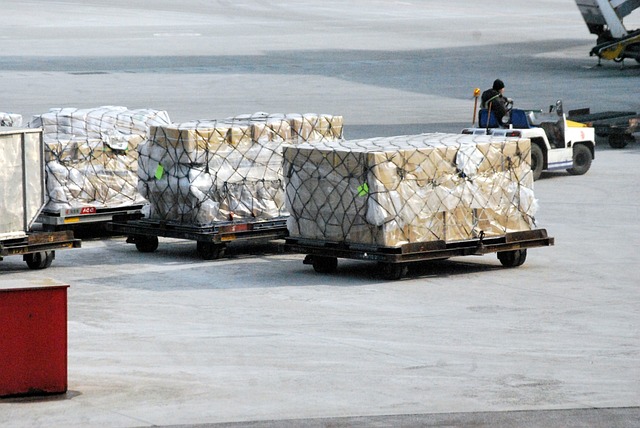By Frank Matarazzo, CEO of Fusion Transport
Cargo theft has become a pressing concern for retailers worldwide, with the number of thefts rising significantly in the past two years. According to recent reports, there were 1,183 reported incidents in 2023, resulting in a loss of $694 million in stolen goods. These numbers paint a grim picture for the future of cargo transportation and have sent retail companies wondering how to move forward and strengthen security to accommodate the rise in theft.
What is Cargo Theft
Cargo theft refers to the transportation of stolen items at any point during the transportation journey of goods, chattels, money or baggage. Incidents and threats have reached diabolical records, causing extreme concern for retailers shipping goods.
Understanding the Challenge
With the increase in the volume of goods being transported globally, retailers who heavily depend on cargo transportation are facing the threat of losing cargo each time they have a shipment. But cargo theft isn’t just a minor inconvenience for retailers; it’s a significant financial and operational burden. In 2023, the average loss per incident for cargo thefts skyrocketed by 67% in comparison to the previous year in 2022. Losses are expected to surge by another 35% in 2024. If retailers can’t depend on secure transportation, consumers can’t receive goods which leaves the average consumer paying higher prices for products.
Retailers have expressed that those stealing cargo are taking a step back from traditional crime to slim their chances of detection. Cargo theft is appealing to criminals because there is a very low risk and very high reward for stealing from cargo trucks. CargoNet ranked California, Texas and Florida as the top three hot spots in 2023. However, this risk isn’t limited to the coasts. Incidents are increasingly being reported in places like Louisville, Kentucky.
Combatting through Strategic Security Measures
In order for retailers to stay ahead of theft, they must develop efficient procedures and vetting processes for shipping their goods. Incorporating comprehensive security protocols will not only discourage potential thieves but also enhance the response of supply chains against theft attempts, ensuring uninterrupted delivery of goods to consumers.
Enhancing Vetting Processes
Tackling the issue of cargo theft starts before goods ever leave the warehouse. Retailers have to incorporate strategic vetting procedures to ensure they’re using trustworthy cargo carriers. This type of system would include thorough background checks, verifying credentials, and assessing past performance records. This comprehensive screening would help retailers establish partnerships with reliable service providers who will, without a doubt, uphold security standards.
Leveraging Technology for Surveillance
But while vetting processes check the records of a service provider, they can’t necessarily vet every single employee that handles cargo. So the next step for retailers is to lean on technology to help combat theft. Boosting cargo security is one way to do this. Retailers can incorporate advanced tracking systems, GPS monitoring, and real-time surveillance to monitor cargo movements and detect any abnormalities quickly and efficiently. These tools provide insights into shipment whereabouts so that companies can act quickly to intervene should there be any discrepancies in where a cargo truck is supposed to be.
Given the surge in schemes involving shipment misdirection and fictitious pickups, which saw a nearly 700% increase in Q2 of 2023 compared to the same period in 2022, leaning on technology to help in the security process could be the difference between a full cargo truck and a missing one.
Fostering Collaboration and Information Sharing
Collaborating with law enforcement and other retailers would add another layer of security for retailers worried about cargo theft. This would look like sharing intelligence and experiences with other retailers or forming industry-wide task forces dedicated to combating cargo theft. And by bringing law enforcement into the picture, it makes sure to hold someone accountable if theft occurs.
Impact on Consumer Prices and Economy
The consequences of cargo theft stretch far beyond the realm of retailers. It also impacts consumer prices and the economy at large. Stolen goods contribute to higher prices for consumers, not to mention the effect on expedited shipping for replacements, an increase in insurance premiums and loss of consumer confidence. While the challenge of cargo theft won’t immediately disappear, it’s important that retailers take proper steps to ensure they and their consumers are treated fairly and don’t suffer the consequences of this rising issue.
Strategies for Small Retailers
Small-to-medium businesses (SMBs) in the retail sector are likely at even more of a disadvantage than larger companies because they don’t have the same access to resources and networks. However, they can take proactive steps to make sure they are also protected. Retail SMBs can consider conducting risk assessments, also leaning on technology, and collaborating with larger companies to increase their resilience to theft.
Investing in Training and Education
Possibly the most important step next to enhancing security protocols is educating employees on them. A company is only as strong as its team and if the team is knowledgeable and vigilant, it significantly reduces the risk of theft. Encouraging staff to recognize and respond accordingly to security threats ensures a vigilant and solidified workforce that’s committed to protecting and upholding cargo integrity. Further, emphasizing the consequences of participating in cargo theft if caught reinforces the importance of security measures. Solidifying staff knowledge and dedication is crucial in maintaining cargo security.
In conclusion, the rise in cargo theft incidents poses an extraordinary threat to retail companies. The financial losses associated with these thefts are significant, reflecting the need for retailers to take proactive measures to enhance cargo security. By refining vetting processes, leaning to technology, collaborating and investing in adequate training, retailers can secure their supply against the risk of theft effectively. Further, smaller retailers, despite their size and resource limitations, can incorporate practical strategies to ensure protection of their cargo. Now is the time for retailers to prioritize cargo security and protect not only their own interest, but also the trust and well-being of consumers and the economy as a whole.
About Fusion Transport
Freight industry visionary Frank Matarazzo responded to the complex challenges of shipping logistics, consumer demands, and the need for advanced supply chain solutions by creating Fusion Transport. Emerging from two third-party logistics brokerages and based in Rutherford, NJ, Fusion Transport has become a pivotal force in retail consolidation and is now a leader in technology-driven freight management solutions. With over 40 years of expertise, the company is revolutionizing the North American less-than-truckload (LTL) network through a technology-based approach that not only meets market demands but also reduces the inefficiencies typically seen in traditional LTL carrier networks. This innovative strategy offers a more streamlined and cost-effective option for shipping merchandise in LTL quantities across the country, epitomizing the disruptive, customer-focused ethos of Fusion Transport. For more information, visit their website at https://www.fusiontransport.com/.
About Frank Matarazzo:
 Involved in all facets of the business since inception in 2019 and having previously served as Vice President of Operation for Global Transport Logistics, Inc., one of the Fusion Transport operating companies for 15 years. As CEO, Frank oversees the strategic direction of the company while working with the Executive Team to drive growth, innovation, and
Involved in all facets of the business since inception in 2019 and having previously served as Vice President of Operation for Global Transport Logistics, Inc., one of the Fusion Transport operating companies for 15 years. As CEO, Frank oversees the strategic direction of the company while working with the Executive Team to drive growth, innovation, and
culture across the organization.
Related Articles

The Rise of Digital Experience Platforms (DXPs) in Software Development
Software development is evolving, as Digital Experience Platforms enable the delivery of a personalised digital cross-channel experience. A DXP delivers integrated content, Artificial Intelligence, and low-code rapid application development tools. It streamlines the work of developers as well as marketers.

7 Employee Benefits That Can Help Your Business Increase Staff Retention
With so many businesses vying for the attention of skilled job candidates, it’s becoming more important to look for ways to make your offerings more appealing by adding unique perks that not every employer does.

How Retailers Can Prepare for the Summer 2025 Shift
Rather than focusing on isolated touchpoints or departmental KPIs, journey management provides a way to understand where the most critical pain points lie and how to resolve them systematically across the business.

Retailers Are Drowning in Data – Journey Management Could Be the Lifeline
Rather than focusing on isolated touchpoints or departmental KPIs, journey management provides a way to understand where the most critical pain points lie and how to resolve them systematically across the business.



 for the latest news and job opportunities in retail tech
for the latest news and job opportunities in retail tech 